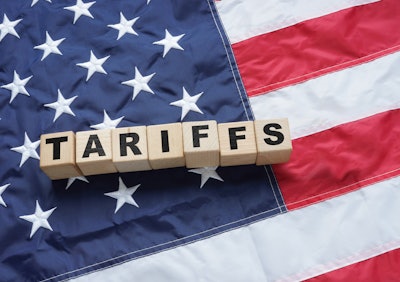
Geopolitical tensions, including tariffs, trade disputes, and ongoing military conflicts, are reshaping manufacturing strategies and operations, according to new data released by Revalize.
“Manufacturers are under intense pressure as global instability and shifting trade policies have created a new and more complicated playing field,” says Mike Sabin, CEO of Revalize. “From tariffs to supply chain uncertainty, these challenges are forcing leaders to make difficult decisions that impact operations and strategies for long-term growth. At Revalize, our goal is to support manufacturers through this complex environment by providing them the tools, technology, and guidance they need to respond with confidence and stay ahead of the curve.”
Key takeaways:
· The report highlights three major areas of disruption: 85% of global manufacturers are restructuring supply chain strategies in response to geopolitical instability; more than half of global manufacturers (53%) are experiencing increased production costs due to recent geopolitical events; and 50% of global respondents are facing higher overall costs linked to new tariffs and global compliance regulations.
· In an effort to maintain profit margins, more than half (52%) of global manufacturers have actively reduced their reliance on suppliers in high-tariff regions, signaling a major shift toward regionalization and supply chain diversification.
· One in five international manufacturers have exited the U.S. market in the past year due to political and economic instability. This places the United States among the Top 3 markets companies are withdrawing from, alongside China (22%) and Russia (30%).
· 54% of U.S. organizations reporting substantial revenue declines over the last 12 months, underscoring the widespread economic ripple effects of geopolitical disruption.
· Over half of global respondents are adopting AI to enhance supply chain and inventory management (51%) and optimize operational processes (50%), signaling a broader shift toward data-driven efficiency and agility.
· 48% of global manufacturers have diversified their supplier base or reduced dependence on single-country sourcing, while 44% are implementing more strategic sourcing to mitigate risks and increase resilience.
· 47% of global manufacturers are prioritizing suppliers with advanced technology capabilities to remain competitive.
· 55% of global organizations report integration challenges caused by unstructured data, siloed systems, and legacy infrastructure.
· If economic uncertainty persists, 52% plan to further diversify supply chains, 41% aim to strengthen supplier relationship management, 37% intend to invest in new technologies, and 36% are exploring localization of production.
















![Pros To Know 2026 [color]](https://img.sdcexec.com/mindful/acbm/workspaces/default/uploads/2025/08/prostoknow-2026-color.mduFvhpgMk.png?ar=16%3A9&auto=format%2Ccompress&bg=fff&fill-color=fff&fit=fill&h=135&q=70&w=240)